Introduction
- Job satisfaction refers to the level of gratification workers attach to their labor (Williams 601; Diener 71).
- An evaluation of job quality offers a good interpretation of future labor-market performance (Organizational Citizenship 1-2).
- This research aims to find the impact of different industries on the levels of job satisfaction of UAE employees.
Job satisfaction is a multidimensional concept that stems from factors such as good salary, interesting work tasks and an intriguing working environment. It is a significant part of social well-being. An evaluation of job quality offers a good interpreter of future labor-market performance. As such, job satisfaction influences employees’ decisions with respect to working hours, job selection, and turnover
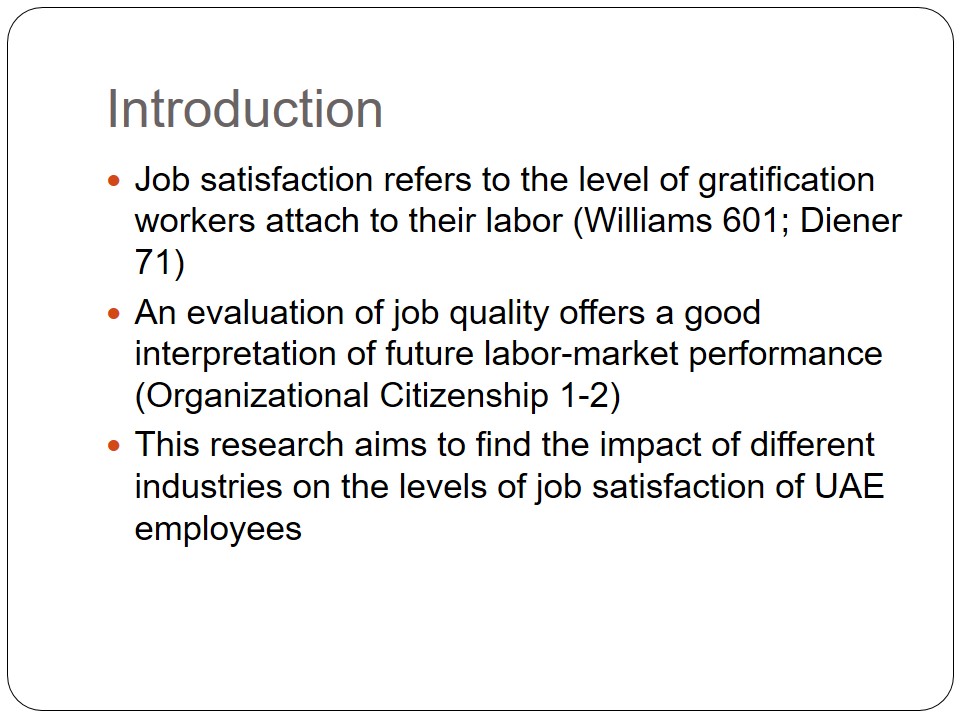
Hypotheses
- Hypothesis 1: Different industries impact the satisfaction levels of employees.
- Hypothesis 2: Some industries have high satisfaction levels due to their job environments.
- Hypothesis 3: Some industries have low job satisfaction due to poor work environments (Clark 3).
- Null Hypothesis: Men and women do not have significant differences in levels of job satisfaction.
- Alternative Hypothesis: Men and women have significant differences in levels of job satisfaction.
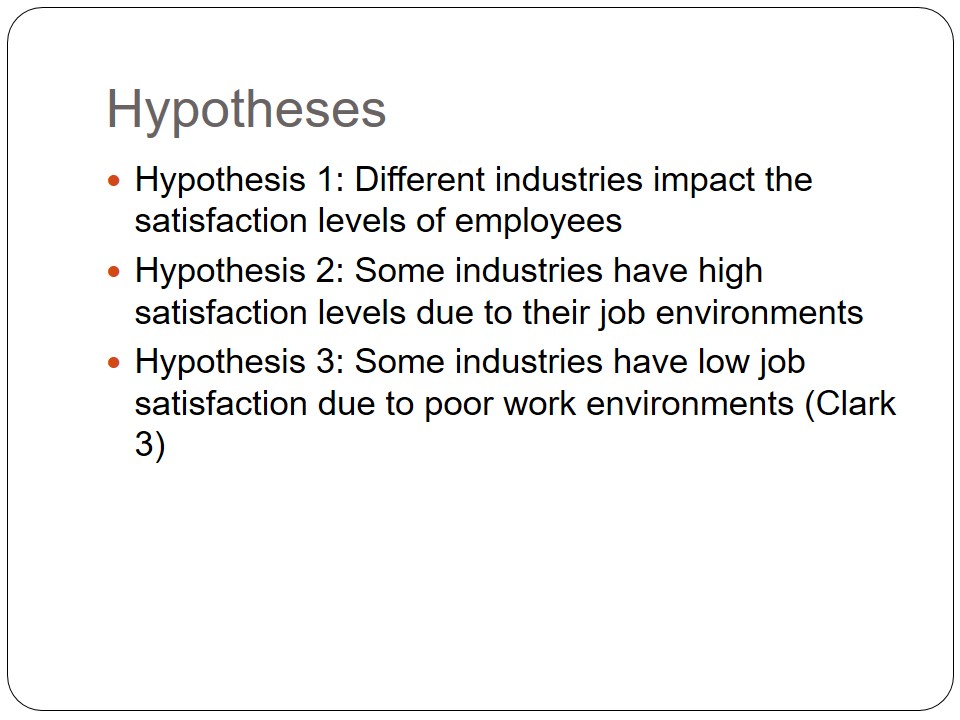
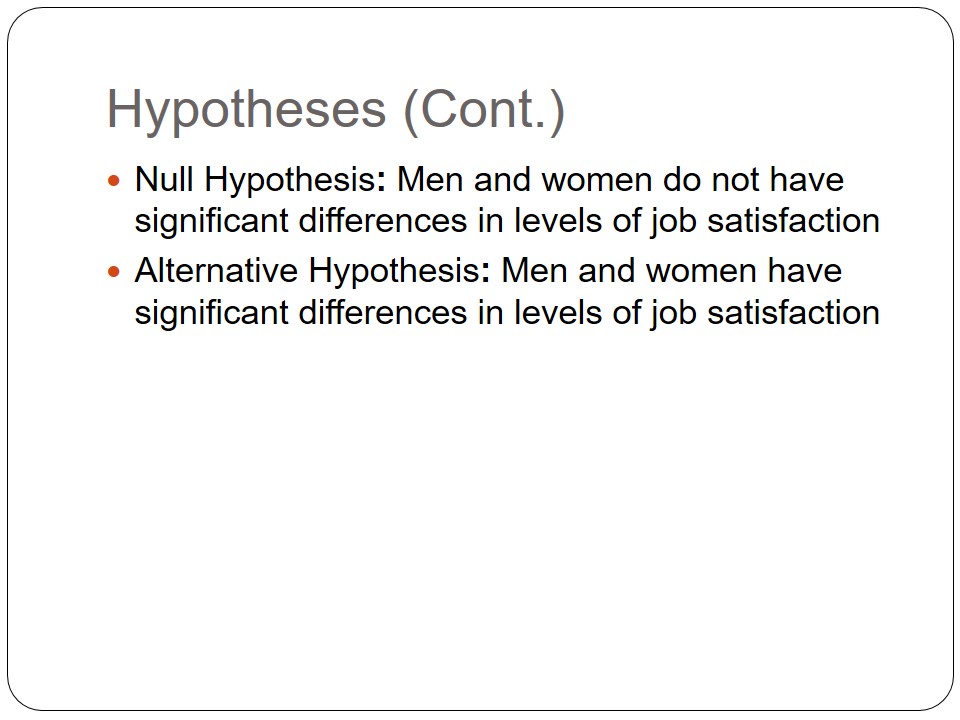
Methods
- The study sampled the views of 265 participants (61 males and 204 females).
- Data was obtained using questionnaires.
- The questionnaires were administered as surveys.
- Data analysis included an evaluation of the mean and standard of deviation.
- Variables used in calculating correlation were salary, work time, opportunities, security, and job content.
- Correlation, regression, and t-test analyses were also undertaken.
The research utilized three articles to come up with good questions. They are Job Satisfaction, Organizational Citizenship, and Life Satisfaction Questionnaire. The questionnaire had five items. The participants were required to indicate if they approved or differed with the question posed. They used a 1-5 Likert scale to express their views on job satisfaction. The scale ranged from “strongly agree” to “strongly disagree.”
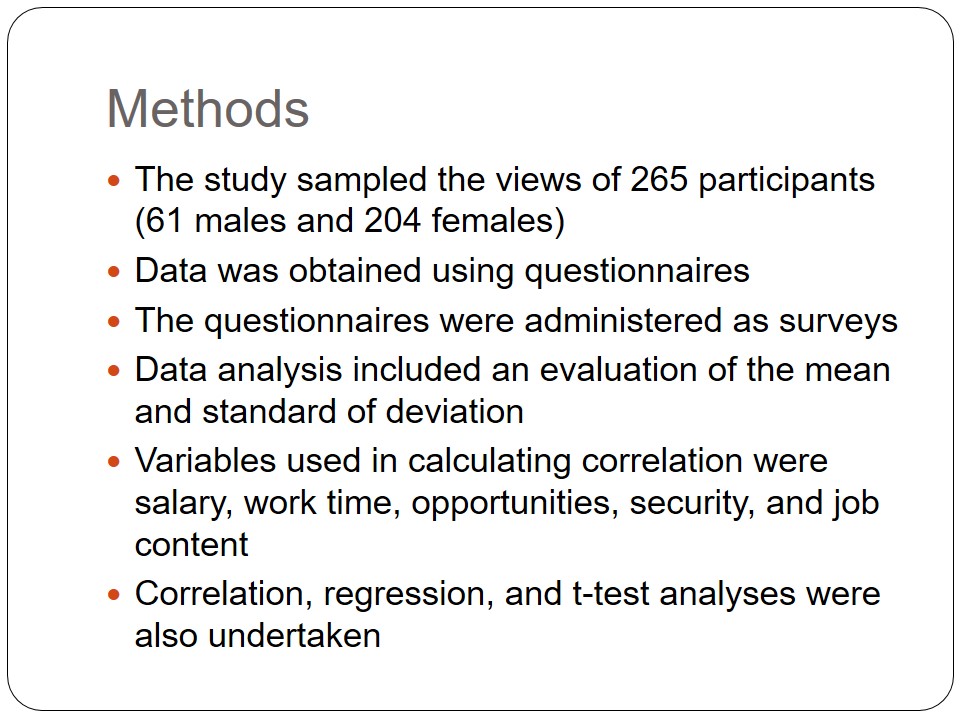
Results
- All sampled variables of job quality were considerably related to overall job satisfaction.
- Job content, job security, and income had the biggest impacts on general job gratification, in that order.
- The time spent working had the least impact on job satisfaction.
From these results, it can be concluded that overall job satisfaction is highly correlated with income, opportunities for advancements and job content, which means that respondents perceive that overall, they are satisfied with their current jobs.
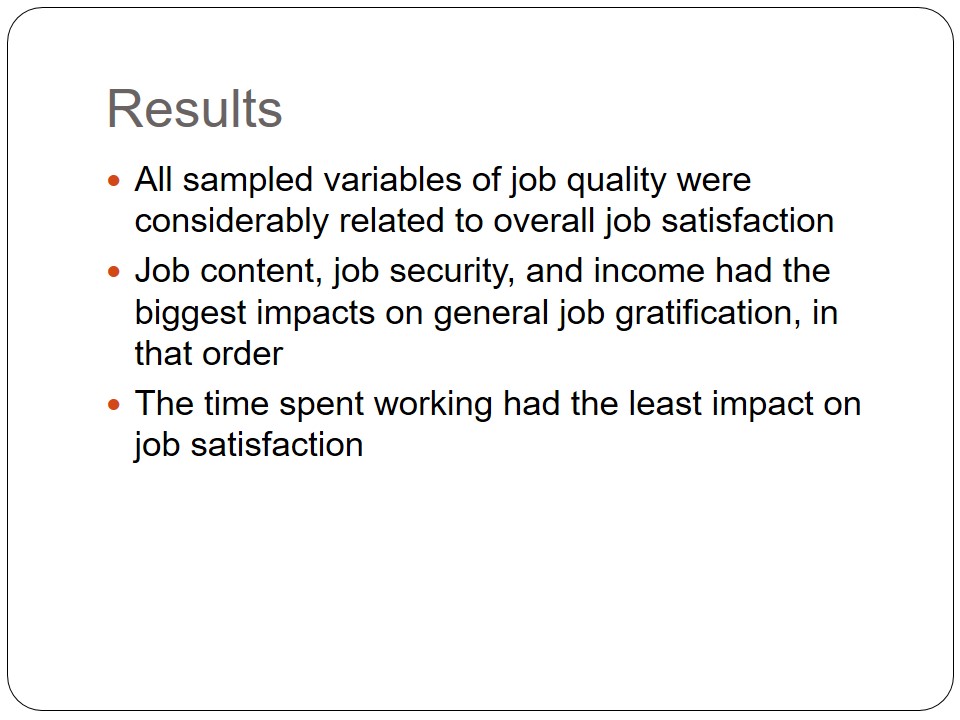
Discussion
- High education levels could have contributed to high levels of job satisfaction (MyPlan 1).
- Negative job perception of employees could have contributed to low levels of job satisfaction (Wicker 19).
The one-way anova result showed that the question “overall I am satisfied with my job” has an F value of (1.942) greater than the Sig value of (0.054). Because F > Sig, then we reject the null hypothesis and accept the alternative hypothesis that there are significant differences in level of job satisfaction between men and women. Furthermore, Levene’s test for equality of variance shows a Sig value of 0.185 greater than 0.05, which means that the variability in the responses of males and females are almost the same and the scores answered by males do not vary with the one made by females. In other words, the statistical test shows that men and women do not have differences in level of job satisfaction.
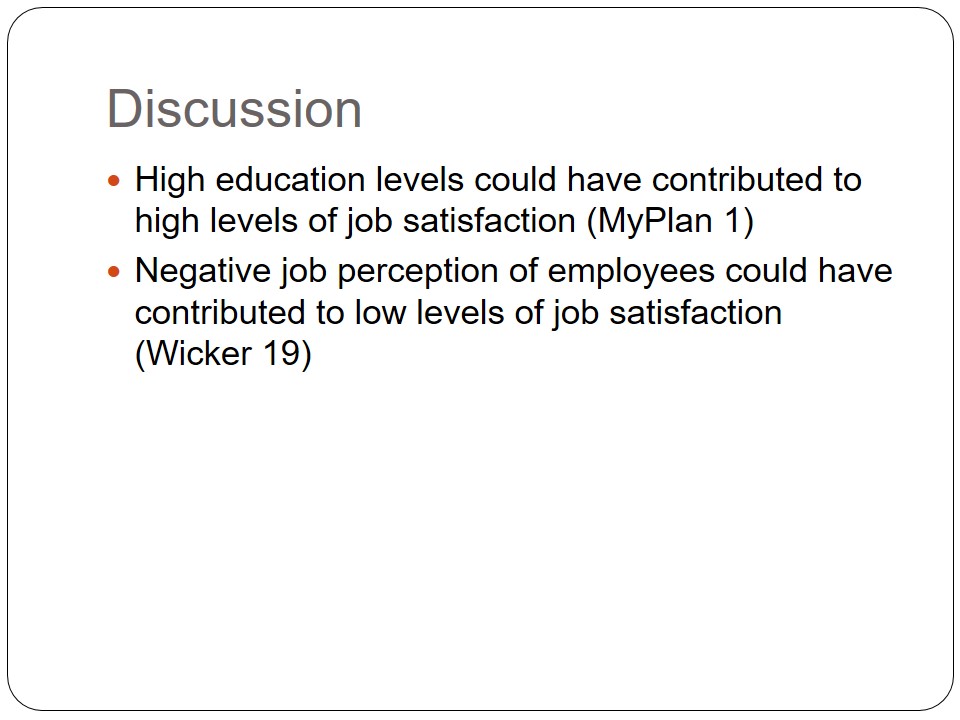
Works Cited
Clark, Andrew. “Measures of Job Satisfaction: What Makes a Good Job? Evidence from OECD Countries”. OECD Labor Market and Social Policy Occasional 34.12 (1998): 3-41. Print.
Diener, Eid. “The Satisfaction with Life Scale”. Journal of Personality Assessment 49.1 (1985): 71-75. Print.
MyPlan. Top Ten Lists / Highest Job Satisfaction. 2014. Web.
Organizational Citizenship. What is organizational citizenship behavior? 2014. Web.
Wicker, Don. Job Satisfaction: Fact or Fiction: Are you satisfied with your job? Bloomington: AuthorHouse, 2011. Print.
Williams, Larry. “Job Satisfaction and Organizational Commitment as Predictors of Organizational Citizenship and In-Role Behaviors”. Journal of Management 17.3 (1991): 601-617. Print.